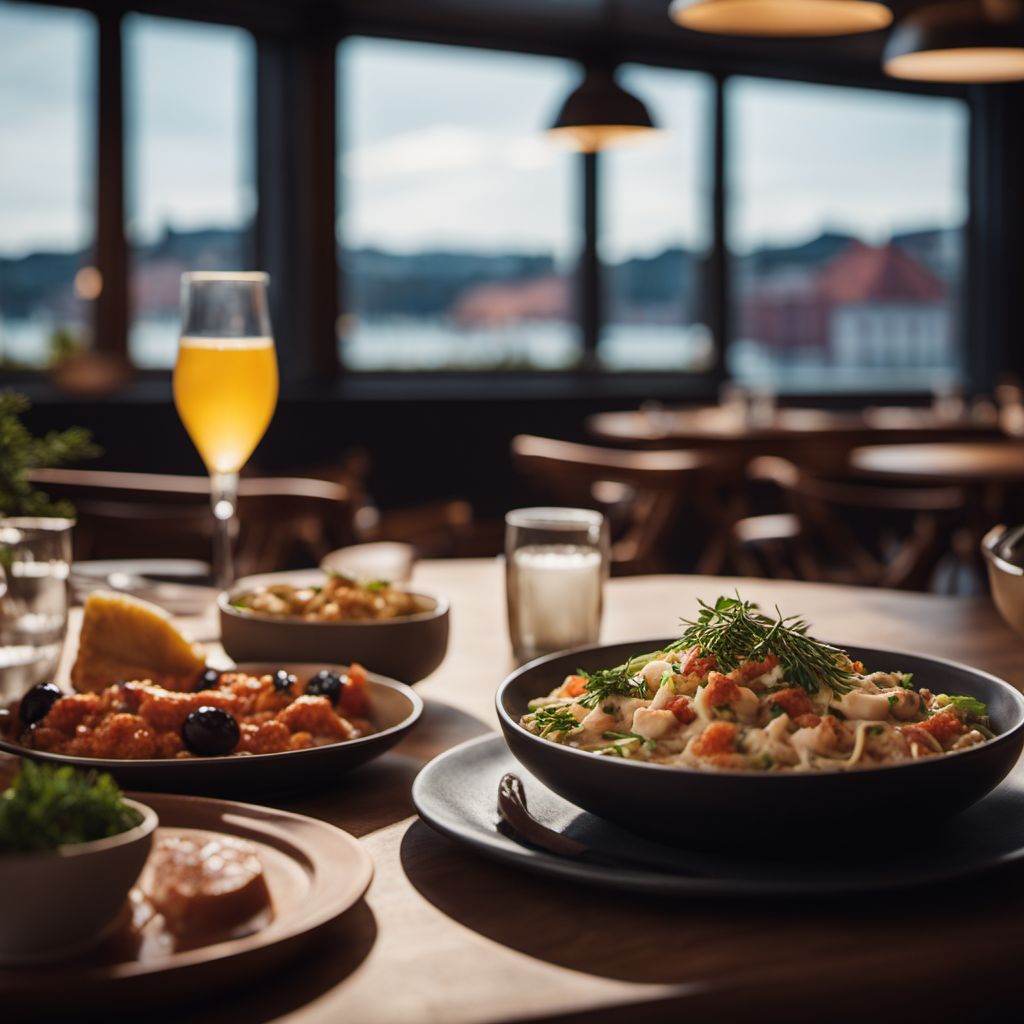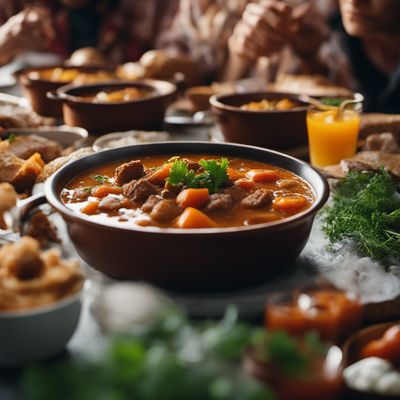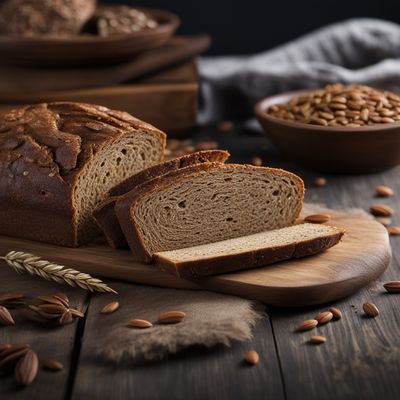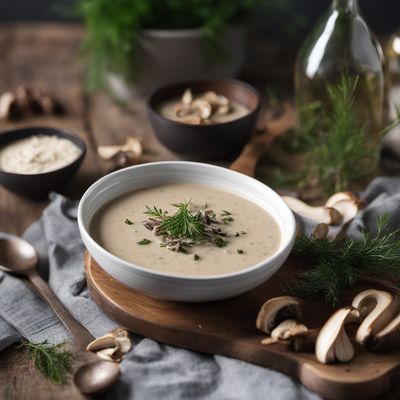
Cuisine
Finnish cuisine
Finnish cuisine is known for its simplicity and use of fresh, local ingredients. The cuisine is heavily influenced by the country's natural resources, with many traditional dishes featuring fish, game, and berries. Finnish cuisine is also known for its use of rye bread, which is a staple of the Finnish diet. Other traditional Finnish dishes include karjalanpaisti (Karelian stew), kalakukko (fish pie), and lihapullat (meatballs).
Typical ingredients
Fish (salmon, herring, perch), Game (elk, reindeer), Berries (lingonberries, cloudberries), Rye bread, Potatoes, Carrots, Turnips, Onions
Presentation and garnishing
Finnish dishes are often served simply, with minimal garnishes or sauces. However, some dishes, such as karjalanpaisti, are traditionally served with lingonberry jam.
Finnish cuisine is known for its use of rye bread, which is a staple of the Finnish diet. The country is also home to a number of unique ingredients, such as reindeer and cloudberries. Finnish cuisine has also been influenced by the country's history of migration and trade, with dishes such as karjalanpiirakka (Karelian pasties) reflecting the influence of Russian cuisine.
More cuisines from this region...
Swedish cuisine, Norwegian cuisine, Icelandic cuisine, Danish cuisine, Sami cuisine
History
Finnish cuisine has a long history, dating back to the country's indigenous Sami people. The cuisine has evolved over time, with influences from Sweden and Russia. Traditional Finnish dishes often reflect the country's rural heritage, with many dishes featuring simple, hearty ingredients that are easy to prepare.
Cultural significance
Finnish cuisine is an important part of the country's cultural heritage, and is celebrated at festivals and events throughout the year. The cuisine is also an important part of the country's tourism industry, with many visitors coming to Finland to sample traditional dishes and learn about the country's culinary traditions.
Health benefits and considerations
Finnish cuisine is generally considered to be healthy, as it is based on fresh, local ingredients. However, some traditional dishes, such as karjalanpaisti and kalakukko, can be high in salt and fat. The cuisine's emphasis on meat and fish can also pose risks if not consumed in moderation.
Finnish cuisine dishes Browse all »

Sillikaviaari
Herring caviar
Sillikaviaari is a traditional Finnish dish made with herring and potatoes. It is a hearty and flavorful meal that is perfect for cold winter nights.

Rössypottu
Meat and vegetable soup
Rössypottu is a traditional Icelandic lamb soup.

Nokia kuuma koira
Nokia Hot Dog
Nokia kuuma koira is a Finnish dish that translates to "Nokia hot dog" in English.

Mansikkakakku
Strawberry Cake
Mansikkakakku is a Finnish strawberry cake that is perfect for summer. It is a light and refreshing dessert that is perfect for any occasion.

Karjalanpiirakka
Karjalanpiirakka is a traditional Finnish pastry made with rye flour and filled with rice porridge.

Perunarieska
Perunarieska is a traditional Finnish potato pancake that is made from mashed potatoes. It is a staple of Finnish cuisine and is often served as an accompaniment to meals or as a snack.

Ohrarieska
Ohrarieska is a traditional Finnish pancake that is made from barley flour. It is a staple of Finnish cuisine and is often served for breakfast or as a snack.

Karjalanpaisti
Karelian Stew
Karjalanpaisti is a traditional Finnish dish that is made with beef or pork and root vegetables. It is a hearty and flavorful dish that is perfect for cold winter nights.
Finnish cuisine recipes Browse all »

Luckeleskäs with Lingonberry Sauce
Savory Finnish Cheese Pancakes with Tangy Lingonberry Sauce

Finnish Rye Bread with a Twist
Nordic Delight: A Modern Take on Finnish Rye Bread

Kainuun Rönttönen - Finnish Potato Dumplings
Hearty Finnish Delight: Kainuun Rönttönen Potato Dumplings

Sillikaviaari - Finnish Herring Salad
Nordic Delight: Sillikaviaari - A Refreshing Finnish Herring Salad

Finnish Blueberry Pancakes
Wild Blueberry Delight: Finnish Pancakes with a Twist

Creamy Mushroom Soup
Savory Delight: Creamy Finnish Mushroom Soup

Sultsina - Finnish Cinnamon Raisin Bread
Heavenly Finnish Cinnamon Raisin Bread Delight

Finnish-style Cheese Pastry
Savory Finnish Cheese Delight

Finnish Strawberry Cake
Scrumptious Strawberry Delight

Finnish-style Fried Arepa
Crispy Corn Delight: Finnish-inspired Fried Arepa

Finnish Christmas Star Pastries
Twinkling Delights: Finnish Christmas Star Pastries

Grilled Beef with Roasted Root Vegetables
Savory Grilled Beef and Root Vegetable Delight